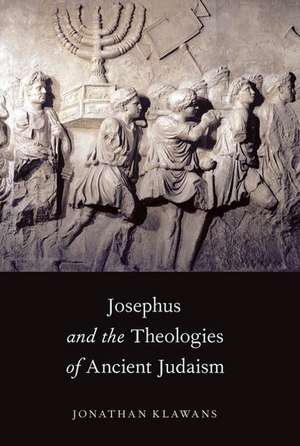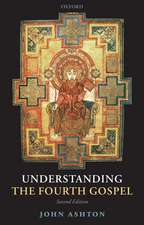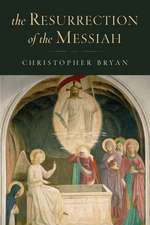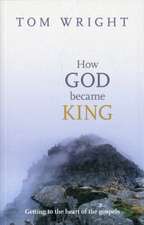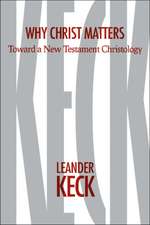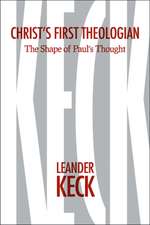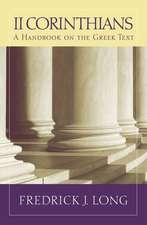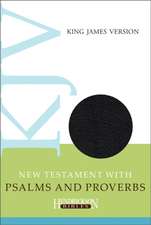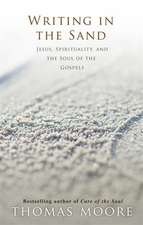Josephus and the Theologies of Ancient Judaism
Autor Jonathan Klawansen Limba Engleză Paperback – 26 ian 2017
Preț: 284.14 lei
Preț vechi: 333.57 lei
-15% Nou
Puncte Express: 426
Preț estimativ în valută:
54.37€ • 56.77$ • 44.90£
54.37€ • 56.77$ • 44.90£
Carte tipărită la comandă
Livrare economică 04-10 aprilie
Preluare comenzi: 021 569.72.76
Specificații
ISBN-13: 9780190646189
ISBN-10: 0190646187
Pagini: 400
Dimensiuni: 155 x 234 x 25 mm
Greutate: 0.59 kg
Editura: Oxford University Press
Colecția OUP USA
Locul publicării:New York, United States
ISBN-10: 0190646187
Pagini: 400
Dimensiuni: 155 x 234 x 25 mm
Greutate: 0.59 kg
Editura: Oxford University Press
Colecția OUP USA
Locul publicării:New York, United States
Recenzii
As a work that 'is primarily addressed to those who engage in the work of reconstructing the history of ancient Judaism', it provides plenty of food for thought. The book includes very substantial endnotes, a fairly full bibliography, and helpful indices.
As in his previous books, Impurity and Sin in Ancient Judaism and Purity, Sacrifice, and the Temple, Professor Klawans displays his enviable skill in absorbing, digesting, and presenting with clarity a vast amount of material on a complicated subject: the theologies of ancient Judaism. Perhaps only a scholar who has already demonstrated his expertise in the area of Jewish law and observance could treat with complete credibility the tricky and touchy topic of 'theology' in ancient Judaism. His achievement is all the more admirable because he focuses upon that protean Talleyrand of first-century Judaism, Josephus.
Erudite, deeply thoughtful, and engagingly written... an important and largely persuasive book that should be read by anyone interested in the theological and religious landscape of first century Palestine.
This learned and engaging volume provides an expertly executed corrective to several common misconceptions about ancient Judaism and replaces them with a nuanced and convincing picture. It offers a much-needed defense of the importance of theology, clarifies our understanding of sectarian division, and counters the notion that after the destruction of the temple in 70 CE, Judaism went into eclipse, and the Jews into despondency. It illuminates ancient Judaism and Christian origins alike.
Over the past couple of decades there has been an understandable move to put special emphasis on legal interpretation of second temple Jewish documents. But as Klawans shows in his latest book, this has come at the cost of taking seriously the theological commitments of the various Jewish groups themselves. This volume is a very sophisticated re-appraisal of the role such commitments played in the shaping of Jewish identity in this crucial period. As we have come to expect from the work of Klawans, he provides a necessary corrective to long held assumptions.
A well-written work... Klawans's arguments are worth reading, whether they bring us to give up long-held opinons or only to re-examine their foundations.
This volume will be a valuable addition to libraries with collections on the Roman world, Judaism, the New Testament, and early Christianity. Summing Up: Highly recommended.
As in his previous books, Impurity and Sin in Ancient Judaism and Purity, Sacrifice, and the Temple, Professor Klawans displays his enviable skill in absorbing, digesting, and presenting with clarity a vast amount of material on a complicated subject: the theologies of ancient Judaism. Perhaps only a scholar who has already demonstrated his expertise in the area of Jewish law and observance could treat with complete credibility the tricky and touchy topic of 'theology' in ancient Judaism. His achievement is all the more admirable because he focuses upon that protean Talleyrand of first-century Judaism, Josephus.
Erudite, deeply thoughtful, and engagingly written... an important and largely persuasive book that should be read by anyone interested in the theological and religious landscape of first century Palestine.
This learned and engaging volume provides an expertly executed corrective to several common misconceptions about ancient Judaism and replaces them with a nuanced and convincing picture. It offers a much-needed defense of the importance of theology, clarifies our understanding of sectarian division, and counters the notion that after the destruction of the temple in 70 CE, Judaism went into eclipse, and the Jews into despondency. It illuminates ancient Judaism and Christian origins alike.
Over the past couple of decades there has been an understandable move to put special emphasis on legal interpretation of second temple Jewish documents. But as Klawans shows in his latest book, this has come at the cost of taking seriously the theological commitments of the various Jewish groups themselves. This volume is a very sophisticated re-appraisal of the role such commitments played in the shaping of Jewish identity in this crucial period. As we have come to expect from the work of Klawans, he provides a necessary corrective to long held assumptions.
A well-written work... Klawans's arguments are worth reading, whether they bring us to give up long-held opinons or only to re-examine their foundations.
This volume will be a valuable addition to libraries with collections on the Roman world, Judaism, the New Testament, and early Christianity. Summing Up: Highly recommended.
Notă biografică
Jonathan Klawans is Associate Professor of Religion at Boston University. He is the author of Impurity and Sin in Ancient Judaism and Purity, Sacrifice, and the Temple: Symbolism and Supersessionism in the Study of Ancient Judaism.
